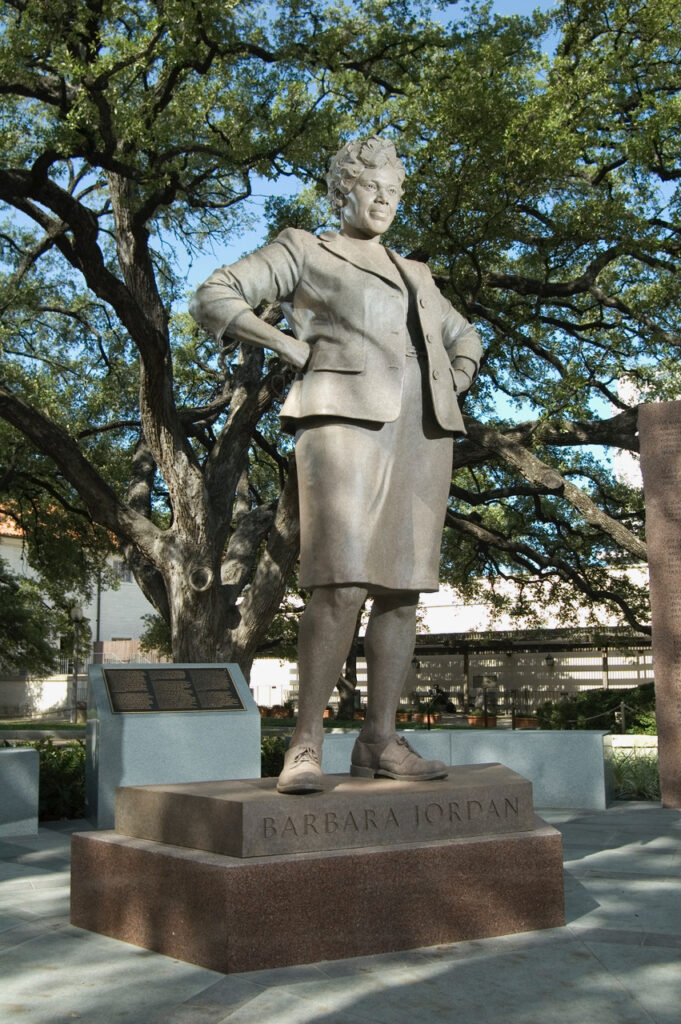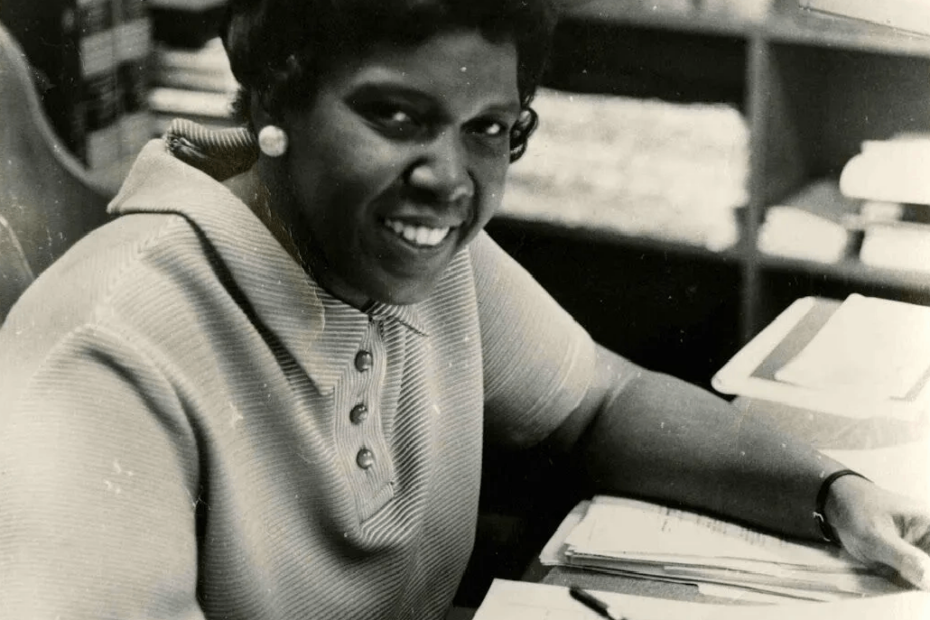The late Barbara Jordan is often considered a trailblazer for African American women in a state where white men traditionally called the shots, but perhaps more importantly, she remains an icon of integrity.

Jordan brought integrity, brilliance, and clarity of thought to her work in the Texas Senate and the U.S. Congress, to the U.S. Commission on Immigration Reform that she spearheaded in later years, and to her tenure as a beloved professor in the LBJ School of Public Affairs at the University of Texas at Austin. She never shied away from difficult discussions or decisions or swayed from the moral high ground.
In 1967 she was elected the first African American senator in the Texas legislature since Reconstruction. Although she was the only woman in the Texas Senate, her colleagues unanimously elected her the outstanding freshman senator.
In 1973 she became one of the first two Blacks from the South elected to serve in the U.S. House of Representatives since 1901. The other was Andrew Young from Georgia.
Yet Jordan was always reluctant to be identified by race or gender—she did not want to be defined by either. Historians Nancy Baker Jones and Ruth Winegarten quote her as saying, “I am not a black politician. I am not a female politician. I am a politician. And a good one.”
 Such a good politician, in fact, that she and State Representative Francis “Sissy” Farenthold, were successful in making Texas one of the first Southern states to ratify the Equal Rights Amendment.
Such a good politician, in fact, that she and State Representative Francis “Sissy” Farenthold, were successful in making Texas one of the first Southern states to ratify the Equal Rights Amendment.
Always knowing how “macho” her home state was, she famously went on an East Texas quail hunt for a group of politicians—mostly white men—and persuaded them to sing “We Shall Overcome” while she played the guitar.
Jordan’s most acclaimed speech was given during the Watergate proceedings in 1974. It began:
Earlier today, we heard the beginning of the Preamble to the Constitution of the United States: “We, the people.” It’s a very eloquent beginning. But when that document was completed on the seventeenth of September in 1787, I was not included in that “We, the people.” I felt somehow for many years that George Washington and Alexander Hamilton just left me out by mistake. But through the process of amendment, interpretation, and court decision, I have finally been included in “We, the people.”
Today I am an inquisitor. An hyperbole would not be fictional and would not overstate the solemnness that I feel right now. My faith in the Constitution is whole; it is complete; it is total. And I am not going to sit here and be an idle spectator to the diminution, the subversion, the destruction, of the Constitution.
In 1977, Jordan decided she would not seek re-election. She had been diagnosed with multiple sclerosis. She went on to teach at the University of Texas for 17 years, where in 2008, she was memorialized with a statue in a prominent location on campus. It was an honor for those of us at Vincent Strategies who worked at the University that year to participate ln planning the unveiling of the life-size bronze statue. We brought hundreds together beneath the beautiful oak trees, to pay tribute to a Texan who changed the state and nation, while inspiring us to be better people and patriots.


